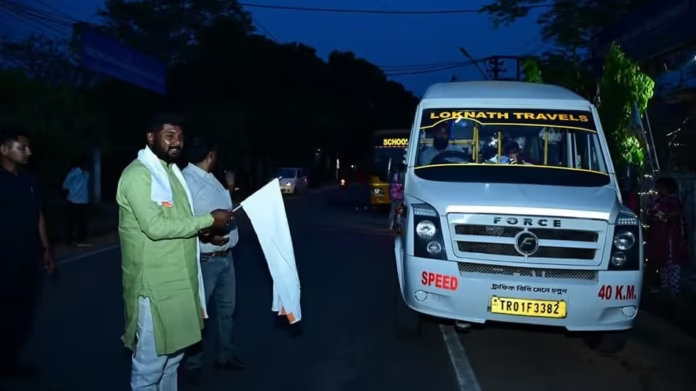Forty-seven young men and women from Tripura set out for Barasat in West Bengal on April 7, 2025, to begin a three-month training programme in the tourism and hospitality sector. The initiative aims to equip the participants with industry-specific skills, enhance their employability, and prepare them for growing opportunities in the tourism-driven economy. Officials from the state’s skill development department flagged off the group at Agartala Railway Station, expressing pride in the enthusiasm of the youth and the potential impact this program could have on their futures.
The training comes under a central government-sponsored scheme designed to build capacity in sectors with high job potential. In collaboration with a reputed training institute in Barasat, the programme offers a comprehensive curriculum that includes practical exposure to hospitality services, customer relations, travel management, and basic entrepreneurship. The youth will receive hands-on instruction from industry experts and mentors who have years of experience working with hotels, resorts, and travel agencies.
The Tripura government coordinated with training partners and logistical facilitators to ensure a smooth departure. Many of the participants, hailing from rural and remote areas of the state, had never traveled beyond Tripura before. Families gathered at the station to see off their sons and daughters, with visible excitement and hope. For some, this journey marked their first step outside their villages in pursuit of a professional career.
Officials involved in the project said they had conducted thorough outreach to identify suitable candidates. They focused on unemployed youth between the ages of 18 and 30 who showed an interest in hospitality and a willingness to commit to intensive training. The selection process also included orientation sessions that helped applicants understand the scope of the programme and the long-term benefits of skill development.
Tripura’s Skill Development Mission has placed strong emphasis on creating linkages between training and employment. After completing the course, the 47 youth will receive certification and placement support. The training institute in Barasat has assured placement assistance with partner hotels, resorts, and travel companies across the country. Some may even find opportunities in Tripura itself, especially with the state’s growing interest in developing eco-tourism and heritage circuits.
State officials praised the initiative as a significant step toward economic empowerment. They said the youth of Tripura have immense potential, and such opportunities help channel their energy in the right direction. The government remains committed to investing in similar skilling programs and forming partnerships with other states and institutions to expand access.
Many participants shared their aspirations as they boarded the train. Some spoke about their dreams of working in top hotels, while others hoped to start their own travel agencies someday. Several young women in the group said they saw this training as a path to financial independence and self-confidence. The mood was upbeat, and conversations revolved around what lay ahead.
Parents and guardians expressed gratitude to the government for supporting their children’s ambitions. They said that without such initiatives, many of these youths would have remained confined to traditional roles in agriculture or small-scale trading. The exposure to a new city, a new industry, and a new way of thinking could be transformative, they said.
The training institute in Barasat has welcomed the Tripura group with arrangements for accommodation, food, and orientation. Trainers plan to blend classroom teaching with field visits to tourist destinations and hospitality venues. The curriculum also includes soft skills such as communication, teamwork, and digital literacy to help the youth adapt confidently to professional settings.
Tripura’s Department of Industries and Commerce, which oversees tourism development, has shown interest in the outcome of this training batch. Officials hinted that future collaborations could bring similar courses to Tripura itself, reducing the need for out-of-state travel while still ensuring high-quality instruction.
As the train pulled away from Agartala, cheers and farewells filled the air. The journey symbolized more than just physical travel—it marked the beginning of a larger journey of ambition, growth, and self-reliance.


